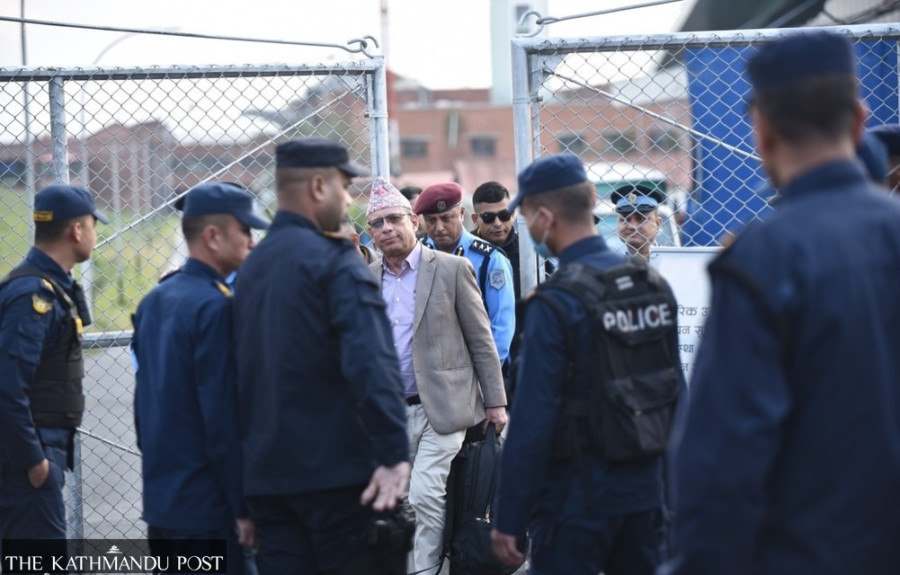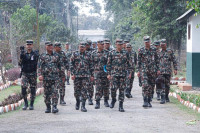National
Supreme Court rejects petition against provincial lawmaker Adhikari
The Kathmandu District Attorney’s Office had earlier decided not to take any case in the court against UML lawmaker Adhikari.
Post Report
The Supreme Court administration has rejected a writ petition demanding prosecution of Lilaballabh Adhikari, a provincial assembly member and former minister for internal affairs and law of Koshi Province.
Police on November 10 had detained CPN-UML leader Adhikari on charges of human trafficking.
The writ, filed by senior advocate Dinesh Tripathi, sought to overturn the Kathmandu District Attorney’s Office’s decision to exempt Adhikari from prosecution. However, Supreme Court Registrar Bhadrakali Pokharel dismissed the petition on procedural grounds.
Adhikari landed in controversy for his alleged involvement with a human trafficking ring that recently arranged fake identification documents for three young men attempting to enter Japan. Adhikari and the youths were deported by Japanese immigration authorities on October 30, and while the other three individuals were detained upon their arrival at Tribhuvan International Airport in Kathmandu, Adhikari evaded investigation by using his ministerial identification.
The accused ex-minister and three others had travelled to Japan under the pretext of attending the “Culture at Heart” programme in Tokyo, organised by Arts Council Tokyo from October 29 to November 3. It is alleged that Adhikari had worked in collusion with the group with plans to exploit the event for human trafficking.
Adhikari admitted to travelling under the influence of a trafficking network, claiming he was unaware of the criminal nature of the arrangement until he reached Hong Kong.
However, officials suspect he only reported the issue to Nepali authorities after Japanese immigration rejected his entry.
He resigned from the ministerial position after being landed in controversy in the first week of November.
Adhikari allegedly facilitated the travel of three youths to Japan during his tenure as a minister. The Japanese immigration authorities deported all three, including Adhikari, back to Nepal. The Kathmandu District Attorney’s Office had previously concluded that there was insufficient evidence to prosecute Adhikari, prompting the writ seeking judicial review.
The dismissal order stated that decisions on whether to prosecute government cases fall under the jurisdiction of the Attorney General as per Article 158(2) of the Constitution. The registrar argued that judicial interference in such matters is not permissible.
However, Tripathi criticised the decision, arguing that it relied on outdated legal provisions and showed a lack of judicial accountability. “There are precedents where the court intervened in similar cases. The Supreme Court administration’s action appears biased,” he claimed, vowing to appeal the decision.
The Kathmandu District Attorney’s Office, on November 25, decided not to take any case in the court against provincial lawmaker Adhikari. Nepal Police arrested Adhikari from Biratnagar on November 10.




 21.13°C Kathmandu
21.13°C Kathmandu













